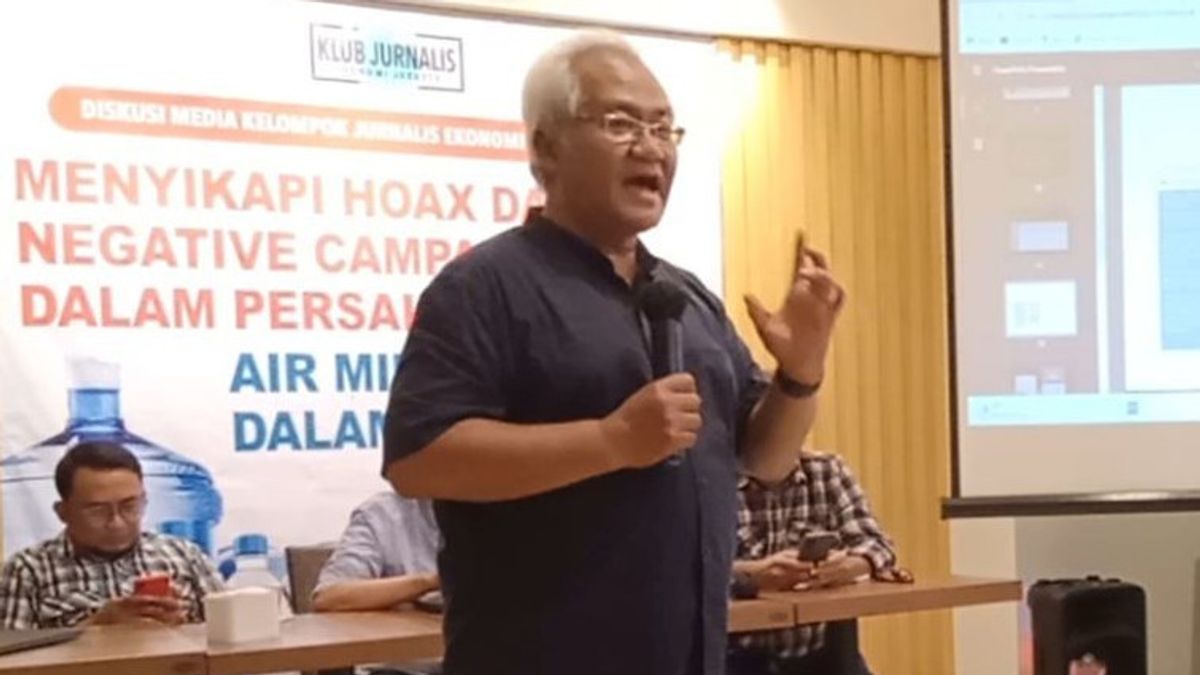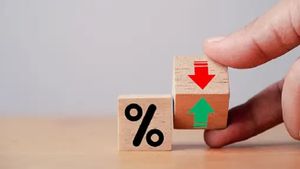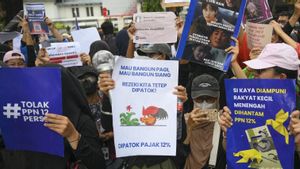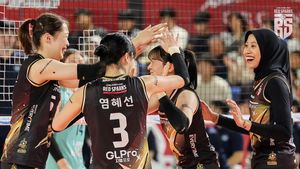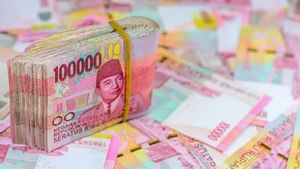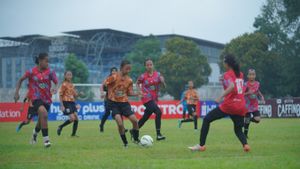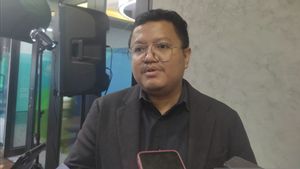JAKARTA - Galon Le Minerale became the target of a negative campaign in various media lines after the domestic product successfully stole the market leader who had dominated the market for decades.
In a media discussion of the Jakarta Economic Journalists Club (KJEJ) with the theme 'Infiltrating Hoax and Negative Campaign in AMDK Business Competition' in Jakarta, Thursday, June 15, it was revealed that one of the negative campaign modes was to associate the company's products with environmental issues.
Exactly, the gallon of Le Minerale is simply labeled 'no matter the environment' just because it is marketed with a broken purchase sales model. In fact, in fact, the packaging of gallons of Le Minerale is made of the latest type of plastic, the same as bottled mineral water plastic branded, which in fact is safer, environmentally friendly and free from the risk of hazardous chemical compound Bisfenol A (BPA).
Appearing as a speaker in the discussion, online media editor Validnews.id, Faisal Rachman, admitted that there were many cases of unhealthy business competition that used the mass media as a combat arena. One of the cases that was quite prominent to the public was the competition between the producers of Bottled Drinking Water (AMDK) between Aqua versus Le Minerale.
"Unhealthy business competition that uses the mass media as a war arena is certainly even more 'hot' because of the mass media whose identity is not clear," he said.
According to Faisal, of the 47,000 mass media as of January 2023, almost 80 percent of them are "bal" media, whose news cannot be accounted for.
He continued, the flood of innovation and creativity of Le Minerale's communication raised various black campaign issues in a number of media that have not been clear lately. Apart from the environmental issues and safety of Le Minerale's products, the news of slander against Le Minerale continues to emerge and even penetrate social media.
This is interesting, because Faisal sees that negative campaign attacks arise precisely when the national AMDK brand successfully scored market growth. Faisal corrected data from the National Packaging Drinking Water Producers Association (Asparminas) which stated that the sales volume of the gallon AMDK branded increased by 3.64 percent in 2022 with total production reaching 10.7 billion liters and sales of Rp9.7 trillion.
From that figure, the sales volume of gallons made from PET plastic packaging, including those produced by Le Minerale, increased rapidly by 31 percent to 818 million liters. This is a sharp spike when compared to the sales volume of Danone Aqua which actually links 0.67 percent to 6.5 billion liters even though overall, Danone Aqua is still in control of around 60 percent of the national branded gallon market.
Most recently, a number of influencers suddenly appeared to broadcast content discrediting Le Minerale and a number of other brands. The latest example is easy to see in Tiktok content from @prazteguh which clearly and clearly slanders a number of brands that are described as bitter and so on.
Surprisingly, the paid campaign only praised one brand, namely the market leader. Also look at negative campaigns in the media such as Sukabumi Mantra, which mentions 5 hidden dangers to Le Minerale products. Later, this media part of the Media Network People's Mind deleted several articles.
Faisal reminded the media to carefully detect similar black campaign efforts, including on environmental issues.
"Greenwashing practices need to be watched out for so that the media are not trapped campaigning for things that are wrong," said Faisal.
'Greenwashing', he said, is easily recognized by the good behavior of companies or organizations that jointly image themselves to the public as a company of "environmental hospitality" rather than minimizing the negative impact of the company's products and activities on the environment.
"With greenwashing, the company can turn itself into an environmental hero even though, it could be, he is one of the first-name plastic polluters in the neighborhood," said Faisal.
Other speakers in the discussion of KJEJ, Head of the Center for Entrepreneurship, Tourism, Information and Strategy after the Sahid University, Algoth Putranto, assessed that the media is currently not optimal in presenting news related to the issue of gallon bottled drinking water (AMDK), mainly from health aspects and environmental aspects.
He gave an example of the lack of comprehensive news regarding the risk of Bisphenol A (BPA) in gallons to repeat
For example, if regulators say the BPA in gallons of polycarbonates is safe as long as it is in accordance with the criteria of the Indonesian National Standard (SNI), the media should be active in digging up the basis of the statement. This needs to be done because in Europe and America, there have been warnings and even prohibitions from food security orientities over food packaging that are at risk of containing BPA," he said.
For the record, BPA is a chemical compound that can trigger cancer, hormonal disturbances and fertility in men and women, as well as disorders of fetal and child growth and development. Sharp is used as a raw material for producing gallons to re-produce, the compound is known to be easily chaotic from gallon packaging and prone to consumption by consumers down to levels that exceed a safe threshold.
This risk has prompted the Food and Drug Supervisory Agency (BPOM) to prepare a regulation on labeling the BPA risk to anticipate the impact of public health in the future.
According to Algooth, the media can contribute to public education regarding the risk of BPA by lifting the economic side of the production of gallons of polycarbonates. The media, according to him, can present the fact that the basic ingredients of gallons of polycarbonate are mostly imported, at a price of 4 US dollars per kilogram.
Meanwhile, for the production of gallons with the packaging of Polyethylene Tereftalat (PET), the type of plastic that is BPA-free, the material is quite available domestically at a price of only a quarter, 1 US dollar per kg.
Furthermore, Algooth hopes that the media will complete to reveal the name of the gallon producer who still uses polycarbonate packaging containing BPA.
"If referring to Law No. 40 of 1999 concerning the Press, the media should not be afraid because this is a public interest (article 3 and article 6). Of course it must be remembered, there are rights and corrections (article 1) that must be respected by the media when there are parties who feel the need to exercise these rights," continued Algooth.
On a separate occasion, the Head of the Central Executive Board of the Indonesian Advertising Company (BPP P3I), Susilo Dwihyamanto, explained to KJEJ journalists by telephone that various forms of negative campaign must be stopped.
"We have prepared clear advertising signs. Thus, all advertising efforts that vilify other competitors in both conventional and social media are unethical," said Susilo firmly.
Susilo explained that various signs related to advertising ethics have been stated in the 2020 Amendment Indonesian Pariwara Ethics Guide.
"Even so, we must also understand that ethics is more guideline. The spirit is self-regulations. How to make ads more ethically," said Susilo.
The English, Chinese, Japanese, Arabic, and French versions are automatically generated by the AI. So there may still be inaccuracies in translating, please always see Indonesian as our main language. (system supported by DigitalSiber.id)
